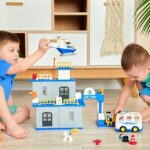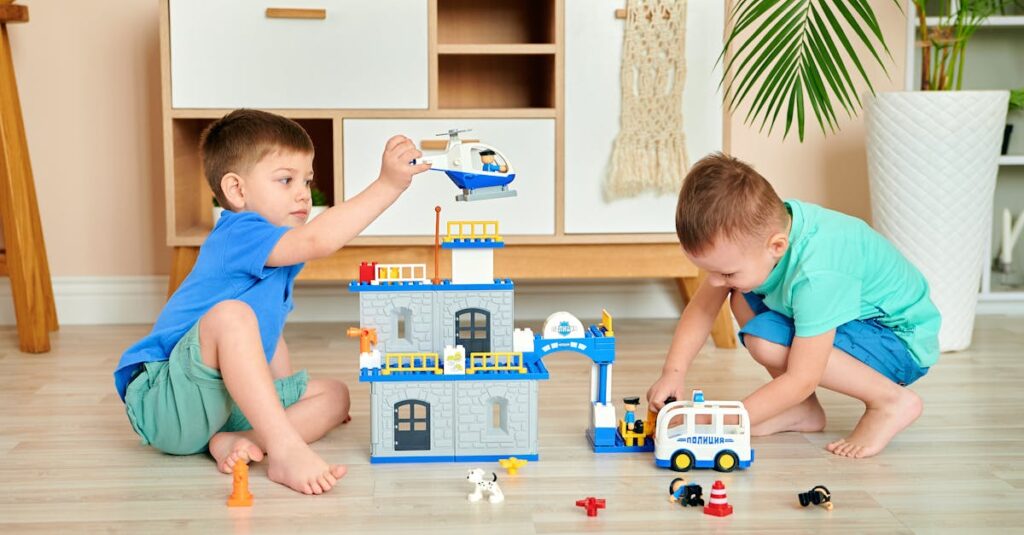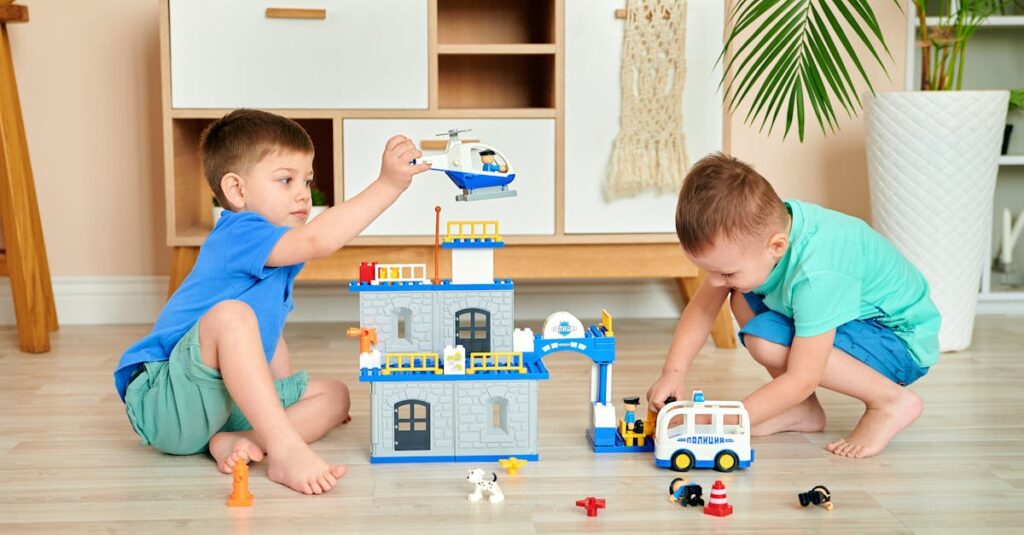In today’s world, parenting styles are as diverse as the kids they raise. But let’s talk about the overzealous approach known as helicopter parenting. Picture this: a parent hovering over their child like a drone on a mission, ready to swoop in at the first sign of trouble. While it may seem like a loving gesture, this constant vigilance can lead to unexpected consequences for both parent and child.
Research shows that helicopter parenting can wreak havoc on mental health, fostering anxiety and dependency in children. As they grow, these kids might struggle to make decisions or face challenges on their own. So, is it time to ground those helicopters and let kids take the wheel? Join the conversation as we explore the impact of helicopter parenting on mental health and discover how a little distance can go a long way.
Table of Contents
ToggleUnderstanding Helicopter Parenting
Helicopter parenting features intense involvement and guidance from parents throughout their children’s lives. This parenting style prioritizes safety and well-being, often at the expense of the child’s independence.
Definition and Characteristics
Helicopter parenting refers to an overprotective approach characterized by excessive supervision and control. Parents may closely monitor children’s activities and decisions, limiting opportunities for them to learn from mistakes. Typical attributes include constant check-ins, involvement in academic and social situations, and a tendency to solve problems for their children. These characteristics can stifle a child’s ability to develop confidence and resilience.
Historical Context
The term “helicopter parenting” emerged in the late 20th century, reflecting societal shifts toward increased parental involvement. Cultural changes, including rising safety concerns and more competitive educational environments, fueled this phenomenon. The popularization of parenting books in the 1990s and early 2000s highlighted the need for parental vigilance. As research surfaced outlining childhood risks, parents gravitated toward this protective approach for their children’s upbringing.
Impact on Children
Helicopter parenting significantly influences children’s development. The intense involvement of parents can impede emotional growth and self-reliance.
Emotional Well-Being
Children raised by helicopter parents often experience heightened anxiety and low self-esteem. Lack of autonomy hinders emotional resilience. Anxiety stems from an inability to face challenges without parental intervention. Such children may struggle to manage everyday stressors. They require guidance but also need space to build confidence. Mental health issues may arise as they feel pressure to meet unrealistic expectations set by their parents. As these children transition to adulthood, they may continue to face difficulties in forming healthy relationships and managing emotions.
Academic Performance
The academic performance of helicopter-parented children shows mixed outcomes. While some children may excel due to constant support, dependency often rises. Relying on parents for academic success can affect motivation and initiative. Those accustomed to parental oversight may lack essential problem-solving skills. Without the chance to learn from failures, they may feel unprepared for real-world challenges. Furthermore, the pressure to achieve high grades can lead to burnout and disengagement from learning. Balancing parental involvement with independence fosters healthier academic habits.
Helicopter Parenting and Mental Health
Helicopter parenting significantly influences children’s mental health, manifesting primarily as anxiety and depression.
Anxiety and Depression
Children raised in a helicopter parenting environment often experience heightened anxiety. They frequently struggle with feelings of inadequacy, as constant oversight can create a sense of being unable to manage on their own. Increased pressure to fulfill parental expectations leads to stress, especially in unpredictable situations. As these children transition into adulthood, they may continue to face anxiety-related issues. Numerous studies indicate that they develop higher rates of depression compared to their peers who experience more independence. Establishing an identity outside parental influence becomes challenging, resulting in persistent emotional struggles.
Self-Esteem Issues
Self-esteem issues arise prominently in children subjected to helicopter parenting. Without opportunities to make independent decisions, they may doubt their abilities. Comparatively, children with more freedom develop confidence through trial and error. Excessive parental guidance stunts emotional growth, leading to a reliance on approval from others. Studies confirm that helicopter-parented children exhibit lower self-esteem than their counterparts. Relationships with peers can suffer as they find it difficult to assert themselves. Additionally, feelings of unworthiness may prevent them from pursuing goals and forming healthy connections.
Coping Strategies for Affected Individuals
Navigating the effects of helicopter parenting requires effective coping strategies. Individuals impacted by this parenting style can take steps towards building their independence and seeking professional help.
Building Independence
Cultivating independence starts with small responsibilities. Setting achievable goals empowers individuals to make decisions without excessive guidance. Exploring new activities fosters self-discovery, allowing one to identify personal strengths. Taking initiative boosts confidence and encourages problem-solving skills. Practicing self-reflection helps individuals understand their emotions, cultivating a stronger sense of self. Engaging in social experiences also promotes movement toward autonomy while developing healthy relationships. Participating in group activities encourages teamwork and connection, reinforcing individuals’ ability to operate independently. Fostering a mindset that embraces mistakes as learning opportunities further promotes growth.
Seeking Professional Help
Seeking professional help often proves essential for coping with mental health challenges associated with helicopter parenting. Consulting a licensed therapist provides a safe space for individuals to process their feelings and develop coping mechanisms. Therapists can employ Cognitive Behavioral Therapy techniques to address anxiety and self-esteem issues effectively. Support groups offer shared experiences, allowing individuals to connect with others facing similar challenges. Therapy can also help individuals develop strategies for asserting independence in various aspects of life. Identifying personal goals with a professional provides clarity and motivation. Prioritizing mental health services encourages positive change and emotional resilience.
Helicopter parenting can have lasting effects on children’s mental health and emotional development. While parents may intend to protect and guide their children, excessive involvement often leads to increased anxiety and dependency. As these children grow, they may struggle with independence and self-esteem, impacting their ability to navigate life’s challenges.
Finding a balance in parenting styles is crucial. Encouraging autonomy and allowing children to learn from their mistakes can foster resilience and confidence. By promoting independence and seeking professional support when needed, individuals can break free from the constraints of helicopter parenting and build healthier emotional foundations. Embracing these changes can lead to more fulfilling relationships and a stronger sense of self as they transition into adulthood.













